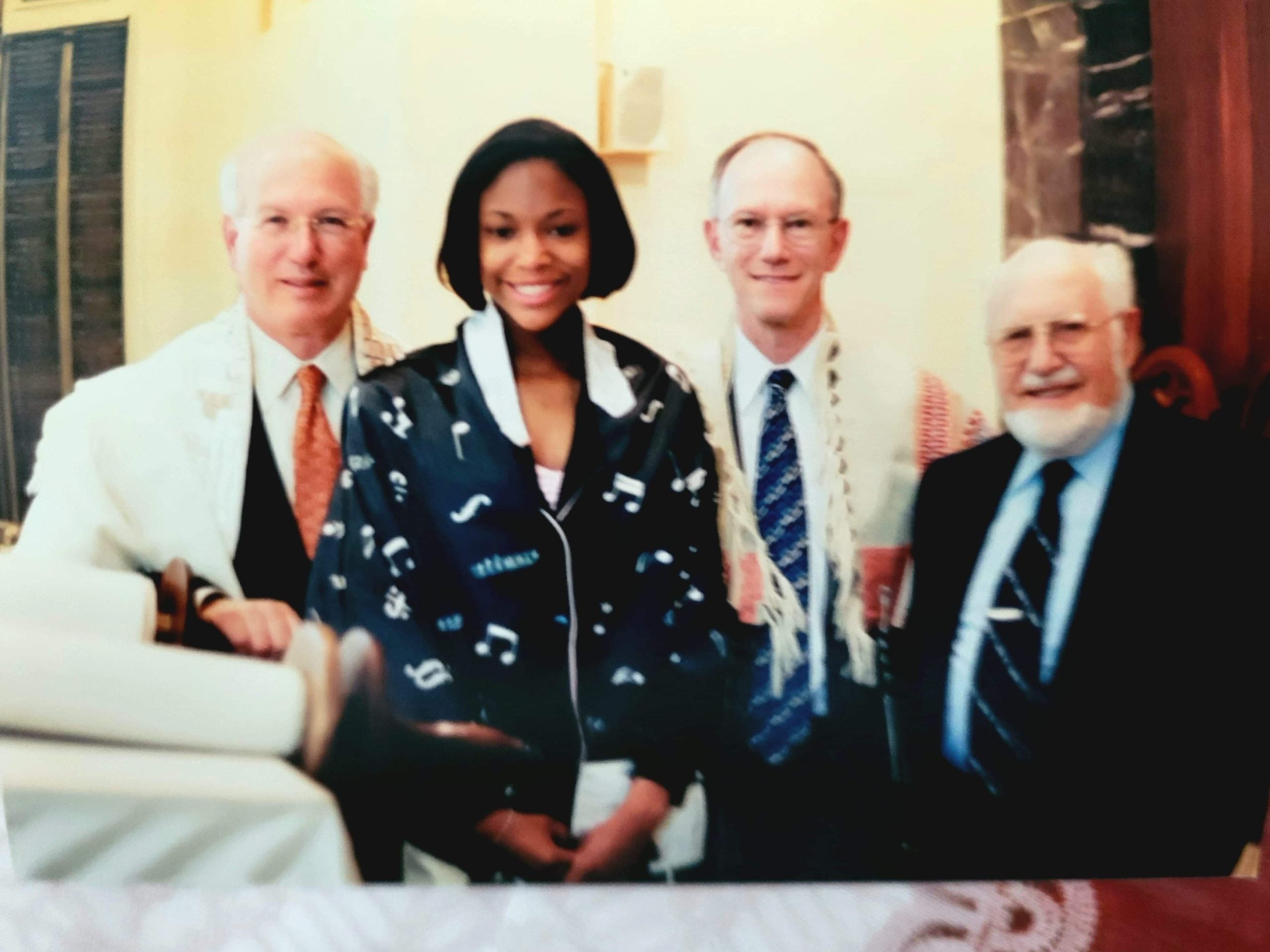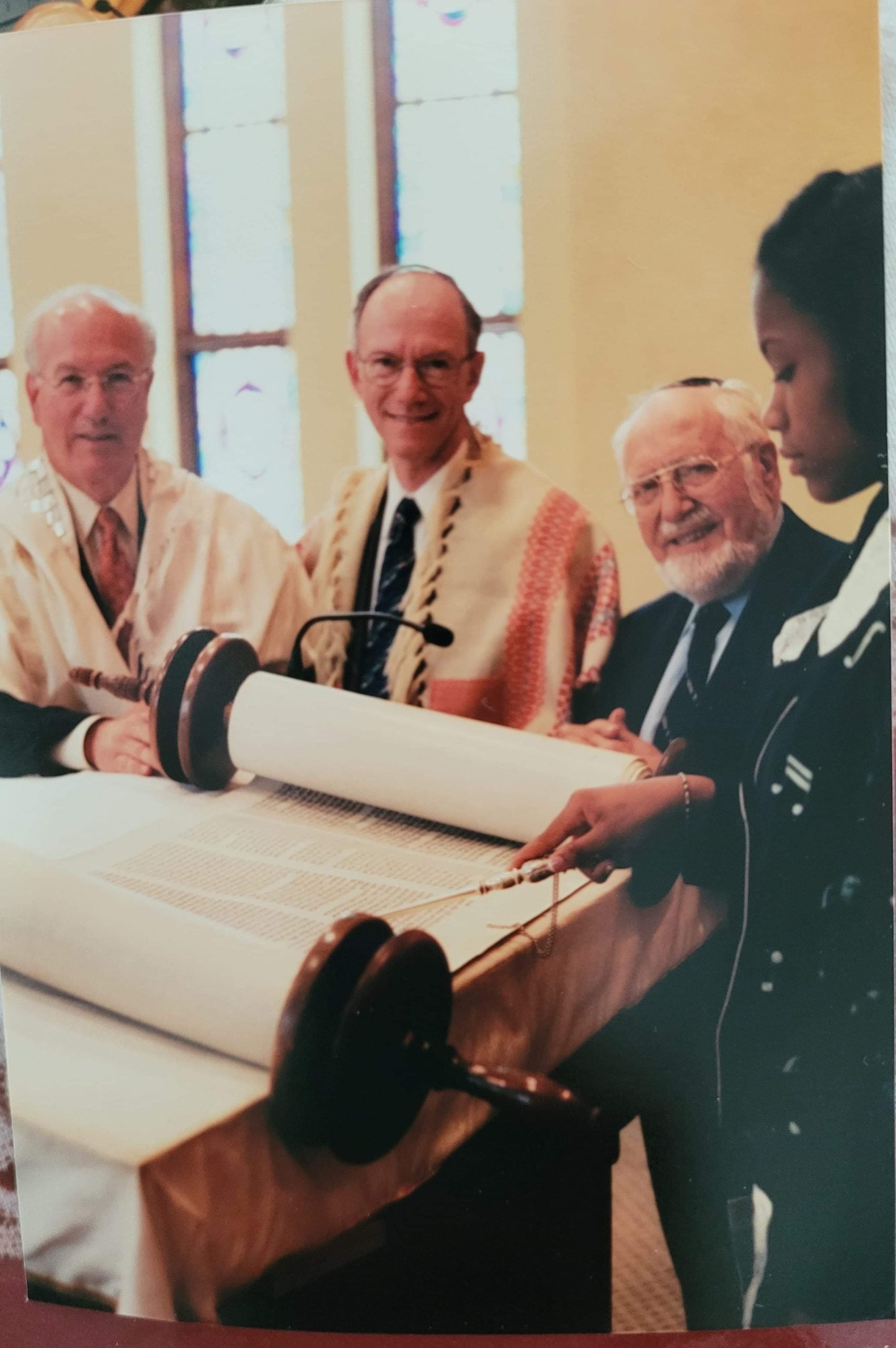
What do Lenny Kravitz, Tiffany Haddish, Drake and I all share in common? We’re each Black and Jewish. A unique and beautiful combination you don’t usually hear of or see in most settings, but we exist.
I can’t speak for these individuals, but for my family, which includes my mother and sister, we converted to Judaism when I was five years old. We were members of Temple Emanu-El, a conservative synagogue in Providence, R.I. I remember it like it was yesterday, being brought into a golden room where I was dunked by the Cantor and Rabbi in the Mikvah, which is a Jewish ritual pool of water meant to purify and cleanse as part of the process.
The synagogue became our second home that I practically grew up in. It’s where I celebrated my Bat Mitzvah, which had the lower and upper level pews filled with my family and friends as well as other Jews of all ages eager to witness and see firsthand a Black one become of age. I also attended one of the top private Jewish schools up until high school where my teachers said I was the best Hebrew reader in my class. My passion and gift for the Hebrew language eventually led to me being the first Black Torah tutor ever. I can honestly say that being at the temple with my family is where I developed a lot of my confidence. It’s where I felt most embraced.

Had it not been for my mother who fell in love with Judaism over the years, and made the conscious choice to ensure my sister and I had access to a loving community and the best education and spiritual experiences, I would not have developed into the successful Black mensch that I am today.
Being the only Black family in the synagogue’s history taught me a lot about life, especially as my mother was a board member appointed to help advise the temple on diversity and inclusion. But if I’m being honest, our situation in Providence, RI was special in that we were loved and welcomed regardless of our race. There wasn’t a day or weekend that went by where we weren’t immersed in the company or residences of other Jews. From weekly Shabbat dinners, to seders, Purim spiels, and sleep away summer camp, we were there.
I had gotten so accustomed to this treatment that I experienced a big shock when I left the nest and moved to New York City for college. When I would proudly tell people that I was Jewish, they would either laugh, doubt or challenge me, and most times, they thought I was making it up. This happened with nearly everyone, including other Jews, Black people, college classmates — it was coming from all sides. I was so confused and truthfully enraged that a diverse melting pot like NYC was unaware and frankly ignorant to Black Jews.

I didn’t want this common interaction to prevent me from following my faith into my adult years, but it just kept happening. I’ll never forget when I purchased tickets for a service during Rosh Hashanah and was questioned and almost turned away because I’m Black. Despite this happening, I still went all while holding back tears. Unfortunately, when I was inside, the glares I got were rude and hurtful even if they weren’t meant to be. Ultimately, it became too much and after this incident, I stayed away from the synagogue for almost a decade.
Over the years, it became apparent how much I desperately craved those genuine relationships and friendships that I had built as a child and teenager in the synagogue. It wasn’t until last year that I realized it was time for a change, and how ridiculous it was to deprive myself of my faith and spirituality because others were uncomfortable with my presence. Luckily, I was fortunate enough to have the encouragement from my mother and writer Ruthie Ellenson who became a friend after hearing of my experiences. It was because of Ellenson that I got the opportunity to attend a Rosh Hashanah service for the first time in years in NYC.
At the same time that I was getting reintroduced to my faith and Jewish community, antisemitism was on the rise. This ignited my triple consciousness as a Black Jewish woman that I’ve been navigating since. It started with Kanye going on the attack followed by Kyrie Irving, Whoopi Goldberg and more Black celebrities with great influence. This caused me to feel exhausted, especially as I was receiving nonstop texts and emails from people asking me what my opinion was on it all. For a while I tried to ignore it, but eventually, I used it as a chance to drown out the hate speech and showcase the commonalities and similar values that Black and Jewish communities share. We have a history of companionship and mutual respect that dates back to the civil rights movement all the way to the present day. It’s important to never forget this bond or our past as there are those who wish to divide us.
It’s been quite the journey. I have been warmly welcomed as a Black Jewish woman, and I’ve been coldly excluded. I’ve distanced myself from the faith and been engrossed in it. It’s all brought me to where I am now, optimistic that these things that define my identity, being a Black Jewish woman, can start healthy conversation and bring people together. With summer winding down and the Jewish high holidays approaching, I’m hopeful that this is a chance for Blacks and Jews to celebrate and appreciate our similarities and differences as one during the New Year.